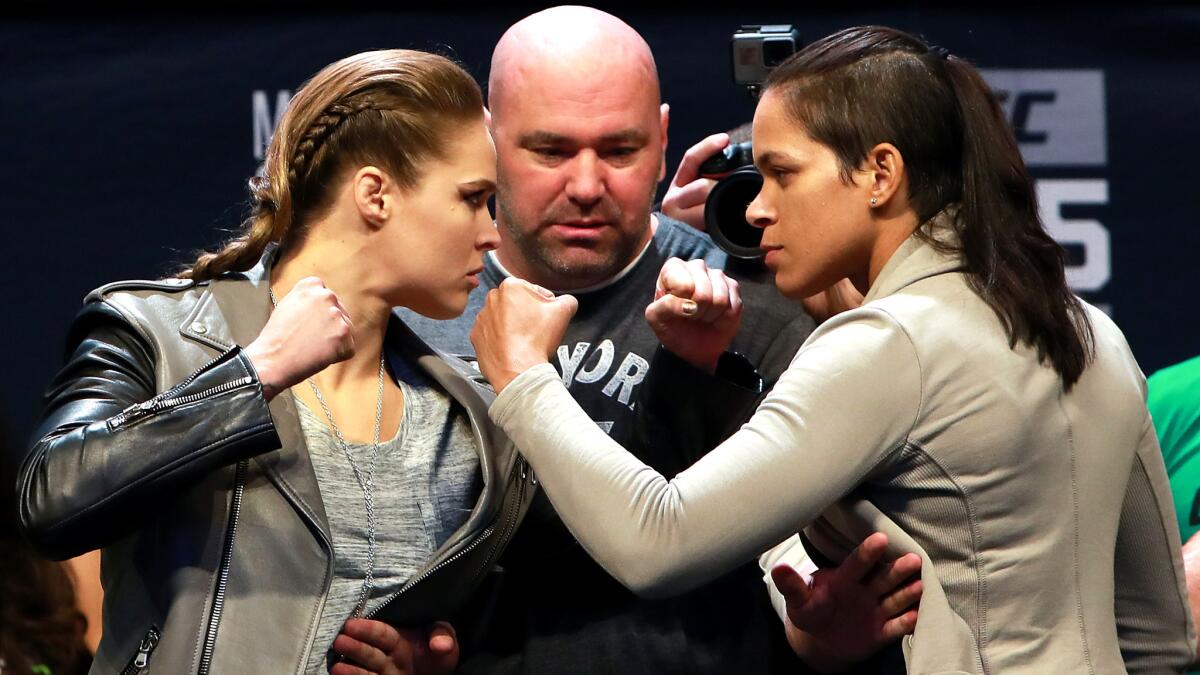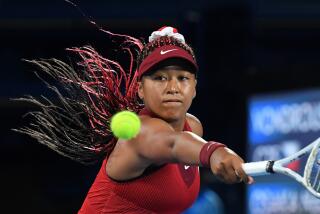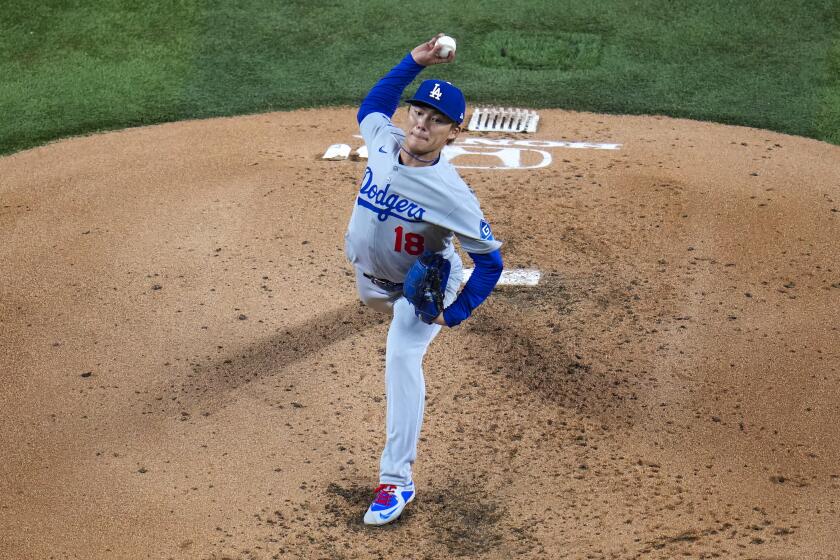What’s behind Ronda Rousey’s reclusive behavior? One UFC champion weighs in.

- Share via
Reporting from San Diego — Ronda Rousey has been swarmed by an avalanche of criticism following her mystique-shattering knockout loss to Holly Holm last year.
The piling on has intensified due to her reclusive behavior, including comments restricted to chummy, high-profile chats on network television.
Seeking to interpret what is going on in the Venice fighter’s mind as her Dec. 30 return against new women’s bantamweight champion Amanda Nunes nears is an inexact, but popular pursuit for outsiders.
Men’s bantamweight champion Dominick Cruz, who will defend his title in the UFC 207 co-main event at T-Mobile Arena in Las Vegas, says when considering Rousey’s situation from his vantage point, it makes perfect sense.
“I get it, 100 percent, no question,” Cruz told the Los Angeles Times this week in an interview at a bayside restaurant near his gym. “People don’t understand how hard it is to have the whole world looking at you lose.”
Beyond Holm’s decided advantages when Rousey tried to stand and fight the former world champion boxer, Rousey (12-1) was dealt her first loss while her status as the face of female fighting dwindled to the sad sight of her shielding her face upon arrival at LAX.
She has been skewered for taking the loss so badly, for silencing a voice of rising importance on social issues, for shrinking from the defeat instead of shrugging it off and vowing a reunion with the belt.
That’s the hinted-at theme of UFC ads aimed at a fan base who helped make her the company’s top draw but haven’t heard much else from her since Conor McGregor’s emergence.
“She only gets to hear everybody else’s opinions now,” Cruz said, explaining that from an elite fighter’s standpoint, “When she gives her opinion, it doesn’t matter any more because she lost.
“It’s a horrible entrapment you feel. It’s a scary feeling. You feel everyone has turned on you. You feel trapped. You feel everyone is a liar. So I completely understand why she’s shut out, why she doesn’t care, why she doesn’t give interviews or anything else.
“Now, all that matters is winning, so that when she talks, it matters again. All that anybody cares about is a win. Then, by winning, I become relevant again. By losing, I prove everybody right, and they get to continue giving their two cents. I win? Their two cents mean nothing.
“Every single one of us athletes, including myself in this fight, puts that on the line. That’s the hardest part about it.”
Cruz (22-1) has suffered through the abandon after fighting only once between Oct. 1, 2011, and Jan. 17 due to knee injuries and a groin tear. He recaptured the bantamweight belt by defeating T.J. Dillashaw 11 months ago, and successfully defended it by closing his trilogy against rival Urijah Faber with a June 4 victory at the Forum.
“Any[one] that talks about her falling back on what she represented … you did not step in there and fight and get your jaw kicked in, you didn’t get humiliated in front of 10 million people. So, you zip it,” Cruz said. “Regardless of how she acted before the fight, it’s a street fight. You’ve got to play the game, say what you need to say to believe it when you get in there to win that fight. Let her be who she wants to be. Don’t judge her, don’t bash her, after she has the guts to lay it all on the line for you to enjoy it.
“She was the face of females. The amount of embarrassment she dealt with, I can’t imagine. The amount of pain when everyone turned on her, I can’t imagine. It takes a certain type of human being to have the willingness to do that.
“Most people have never been in a fight in their life. You know why? It takes too much guts to look at yourself in the mirror after a loss.”
Brazil’s Nunes (13-4) looked impressive in taking the belt by a first-round submission that followed impressive punches on Miesha Tate in July, but the magnitude of the event and the depth of Rousey’s judo skills cause Cruz to judge this a favorable matchup for the ex-champion.
“As long as her brain is intact and she challenged herself in camp,” Cruz cautioned.
“What happens to a lot of people, they become so successful, they stop allowing people to beat them in practice. When you stop allowing people to challenge you, because you need this safe haven to avoid injury because you’re the best, that’s when the downfall begins.
“You need [training partners] to grind you out for five rounds, people who can knock you out. And if she brought those people and situations to camp, she won’t be surprised in the fight.
“That’s what it comes down to: Leave ego at the door and don’t surround yourself with yes-men who coddle the fighter. You want to get smashed [in training] and make adjustments. I fight three to five people for three to five rounds. I’m not meant to win sometimes. The goal is simply to not quit. I’ve never quit. That’s what it comes down to: not quitting even if your nose is bloodied, your mouth is busted. Grind it out and keep fighting.”
Rousey’s trainer, Edmond Tarverdyan, has come under fire for dubious corner advice to both Rousey and her boyfriend, heavyweight Travis Browne.
“She either has those [challenging] type of people around her, or people who are cowering over her,” Cruz said. “This fight depends on that.”
Follow Lance Pugmire on Twitter @latimespugmire
More to Read
Go beyond the scoreboard
Get the latest on L.A.'s teams in the daily Sports Report newsletter.
You may occasionally receive promotional content from the Los Angeles Times.











